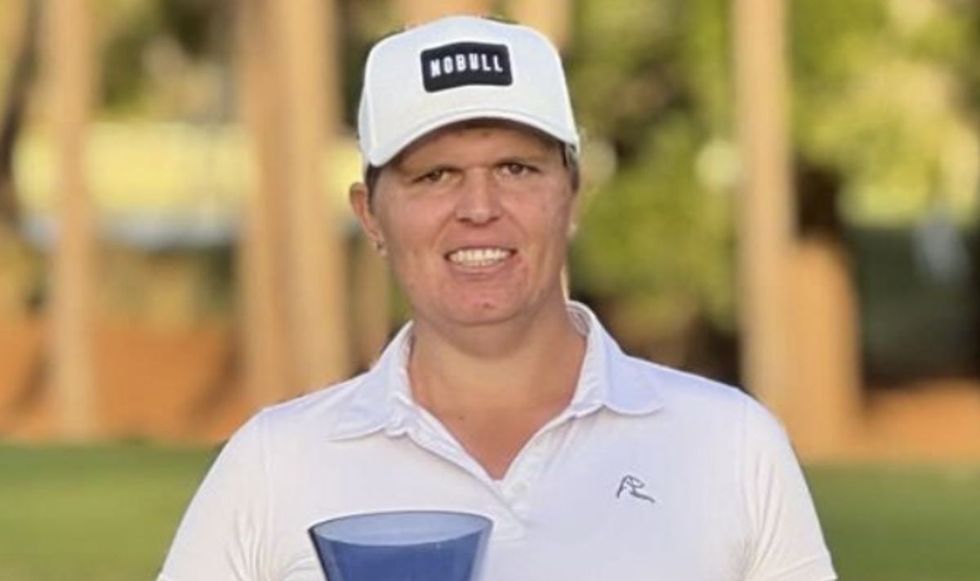The LPGA and USGA have announced new gender policies that will require players to be assigned female at birth or to have transitioned before male puberty to compete in their tournaments from 2025.
The policies, revealed yesterday following more than a year of scientific and medical research, will apply to LPGA tournaments and eight USGA championships for females.
The changes will affect players like Hailey Davidson, who narrowly missed qualifying for the U.S. Women’s Open this year and recently competed in LPGA Q-school.
Davidson, who began hormone treatments in her early 20s and underwent gender-affirming surgery in 2021, will become ineligible under the new rules.
 Hailey Davidson has caused controversy by competing against biological women in golfINSTAGRAM
Hailey Davidson has caused controversy by competing against biological women in golfINSTAGRAM
Davidson responded strongly to the announcement on social media.
“Can’t say I didn’t see this coming,” she wrote on Instagram.
“Banned from the Epson and the LPGA. All the silence and people wanting to stay ‘neutral’ thanks for absolutely nothing. This happened because of all your silence.
“What a great birthday present for 2024. Having the greatest achievement I’ve earned in my life taken from me.”
The 32-year-old had previously found success on Florida’s NXXT Golf mini-tour until March, when that circuit also implemented rules requiring players to be assigned female at birth.
Davidson would have had limited status on the Epson Tour, the LPGA’s development pathway, after reaching the second stage of Q-school.

Hundreds of female golf stars have complained about the participation of transgender player Hailey Davidson
The LPGA emphasised that the new policy aims to balance inclusivity with competitive fairness.
“Our policy is reflective of an extensive, science-based and inclusive approach,” said LPGA Commissioner Mollie Marcoux Samaan, who will step down in January.
The organisation’s working group of experts determined that male puberty provided competitive advantages in golf compared to players who had not experienced it.
“The policy represents our continued commitment to ensuring that all feel welcome within our organization, while preserving the fairness and competitive equity of our elite competitions,” Samaan added.
The changes will affect both the LPGA Tour and its developmental circuits, including the Epson Tour and Ladies European Tour.
The new policies include specific requirements regarding male puberty and hormone levels.
 Hailey Davidson recently sparked controversy by winning a women’s golf tournamentINSTAGRAM
Hailey Davidson recently sparked controversy by winning a women’s golf tournamentINSTAGRAM
Players assigned male at birth must prove they have not experienced puberty beyond the first stage or after age 12, whichever comes first.
They must also meet strict testosterone level limitations.
USGA CEO Mike Whan emphasised competitive fairness as the policy’s guiding principle.
“We tried not to get into politics,” Whan said. “We just simply said, ‘Where would somebody have a competitive advantage in the field?’ And we needed to draw a line.”
The USGA policy will take effect for the 2025 season, beginning with the U.S. Women’s Amateur Four-Ball in May.
“Will that change in the years to come as medicine changes? Probably,” Whan added.